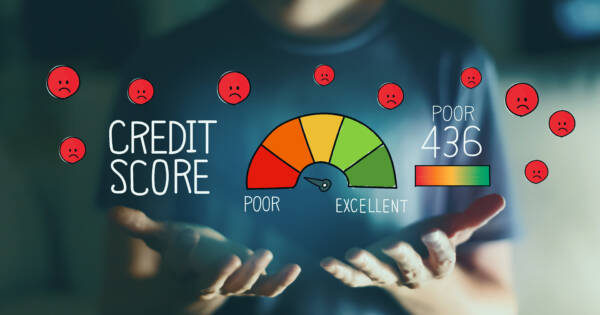Receiving a denial on your credit card application can put quite a damper on things. Rest assured, though, that this decision isn’t necessarily set in stone. There are actions you can take to potentially overturn your rejection and receive that new card. You should consider contacting the reconsideration line of whatever financial institution denied your credit card application. If you’ve never heard of a reconsideration line, you’ve come to the right place.
In this article, we’ll teach you all about reconsideration lines. We’ll also walk you through the process of calling one yourself, if you ever need to. While every credit card company will have slightly different rules and polies, the concept of a reconsideration line remains the same. You’re basically asking them to reconsider their previous decision, based on new information that you’ll provide.
What is Credit Card Reconsideration?
You might assume that all credit card denials are hard-and-fast no’s. However, it’s not always so black and white. Some applicants can successfully have the rejection overturned. In order to appeal your credit card denial, however, you’ll have to contact the institution that originally made the decision. Simply reaching out to find out why your application was rejected is just the first step in finding out whether you can ask the credit card company to reconsider your application.
One way you might know you’ve been rejected by a credit card company is receiving an “adverse action” letter in the mail. This type of letter is required due to the Fair Credit Reporting Act, which demands credit card institutions send out letters explaining their decisions. You should note that “you will only receive this letter if you were denied based on information from your credit report, so if you’re denied for another reason, you may not receive this letter.”
All the same, you can still contact the company to find out where you stand in the application process.
Why Your Application Might Have Been Rejected
Any notice of denial typically comes with a reason for that denial. However, in some circumstances you may still be left wondering. Here are just a few reasons why your credit card application might have been rejected. If any of them they apply to you, it may be a contributing reason to the rejection.
- You don’t have any credit history.
- You’re too young (21 years of age or younger).
- Your account is too new.
- You don’t have enough employment history.
- You received a credit line increase/decrease over the past few months.
- If you made a late payment.
- Your balances are too high.
- Your account is past due.
- You have a low usage recently.
- You have too many credit cards.
- Your credit score is too low.
- You reported your credit card lost or stolen.
- You provided incomplete/insufficient information on your application.
Here is one of the most obvious reasons you might have been rejected — simple mistakes. An innocent typo made by you (on your application) or the company (in their system) could tank your application by accident. A small missed digit here or misspelled name there could be a simple fix to your credit card application woes. However, you won’t know until you call.
Your Results May Vary
Many banking institutions also implement their own restrictions when it comes to credit card applications. For instance, Chase credit cards are subject to “the unofficial 5/24 rule that limits new accounts for consumers who have had five or more new credit cards within the last 24 months.”
American Express also only allows you to hold four credit cards at one time. The hard truth of the pandemic, though, is that many “banks tried to limit their risk with the economy teetering and unemployment claims skyrocketing.” That meant minimizing their risks by enacting stricter guidelines for credit card approval. That means those who would have easily qualified for a credit card before Covid-19 are now facing denials instead.
Knowing the grounds upon which the credit card company made their decision will guide you in your next steps. So when exactly should you act to get that verdict overturned?
When Can You Request a Reconsideration?
It’s not always a good idea to call your banking institution right away if you’ve received an adverse action letter. Some sound strategy and the right approach could mean the difference between being rejected again or having a reconsideration request work out in your favor. While you might be fired up and ready to plead your case, resist the urge to call immediately. Instead, take the time to gather important documents, read the fine print, and practice your argument.
The Ascent advises “you have about 30 days during which the card issuer will review the initial application that you submitted and potentially reverse the denial of the application.” So you do have a limited window to call and ask about a reconsideration. However, we definitely recommend taking a few days to research the reason(s) why you might have been rejected and prepare your case.
How to Request One
Once you’ve decided to call and ask for a reconsideration of your credit card application, you should take the following steps to increase your chances of approval.
- Gather your documents: Remember that adverse action letter? Have that handy, along with your income details and credit reports from Equifax, Experian, and/or TransUnion.
- Remember to be polite and helpful: Plan your approach before you even hit the call button. A pleasant attitude goes much further than a demanding one.
- Locate the reconsideration line’s number: Forbes has compiled a list of the most popular credit card companies and their corresponding reconsideration lines. If you can’t find the specific number, just use the standard customer service line. Someone will redirect you.
- Be prepared: You may need to negotiate terms. Otherwise, you may end up just being rejected once again.
The bottom line is that there’s no guarantee the bank will approve your credit card reconsideration request. Taking advantage of an appeal process, however, will give you an answer to point you in the next direction. At the very least, they should give you a more detailed reason for your rejection. That means you’ll know what aspect of your finances you need to work on the most in order to qualify in the future.
What Not to Say When Requesting a Reconsideration
When you’re on the phone with a credit card representative, there are a few things you’ll want to avoid mentioning. For instance, UpgradedPoints reminds us that companies don’t appreciate those who admit they only want the sign-up bonus, with no real intention of using the card again afterwards. They’d rather approve a life-long customer. So if you’re only planning to collect a sign-up bonus and bail, don’t reveal it on the phone.
Another misconception is that you only have a single phone call to plead your case. Don’t worry, the first call is not your only shot at redemption. In face, it’s very common advice to just hang up if you’re not getting anywhere with the representative. Just call back tomorrow. Hopefully, you’ll get a new representative that is more receptive to your powers of persuasion.
Alternatives to a Reconsideration Request
When “no” really does mean “no,” it can be discouraging. However, there are still a few options you should consider before giving up completely. Here are just a few plans of action you could take.
- Wait 6-to-12 months for any hard credit inquiries to pass.
- Pay down some debt to decrease utilization and potentially increase your credit score.
- Apply for a lower credit card tier, a secured credit card, or a different card entirely.
- Take on a cosigner to reduce your risk.
- Upgrade an existing card instead, by asking for a higher limit.
For some people, adding another credit card may not be the answer. Take a moment to rethink your strategy. What decision will best set yourself up for future success. With the right attitude, achieving a “yes” on your next credit card application should be possible.
The Bottom Line
They used to hand out credit cards to almost anyone. These days, though, banks are being a little more careful. If you’ve suffered through some financial difficulties in the past couple of years, you may find your next credit application rejected without much explanation. If you think they’ve made a mistake, go ahead and call a reconsideration line. You may be able to convince them that you’re actually a reliable spender, who isn’t at risk of defaulting on the card or declaring bankruptcy in the future.
 Shutterstock
Shutterstock







